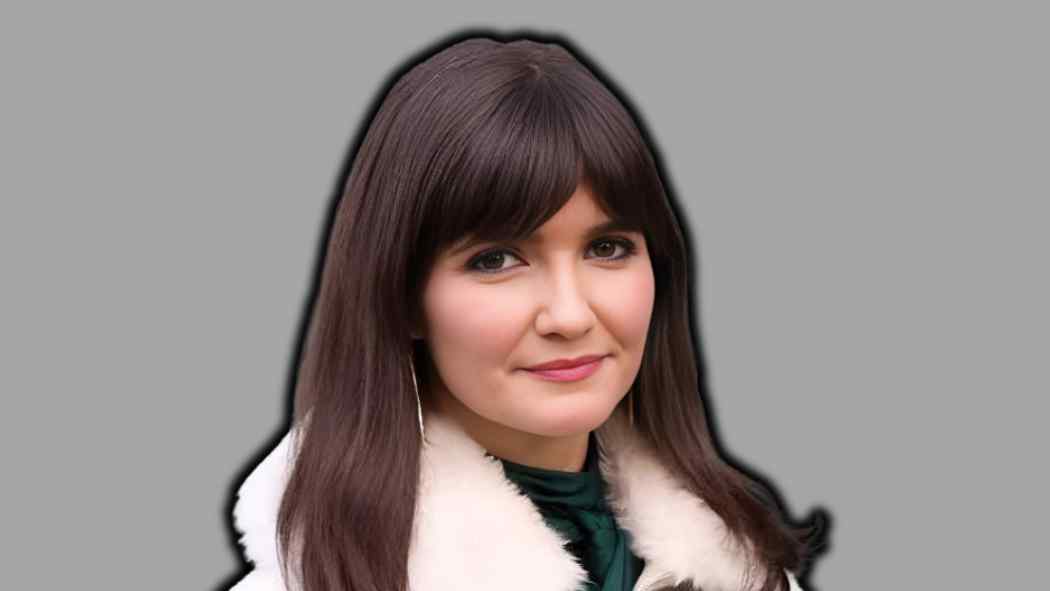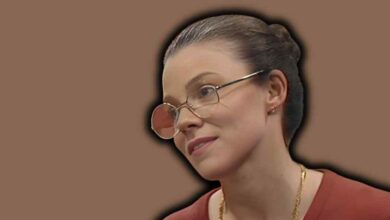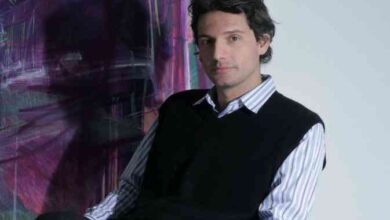Carmen Pieraccini: The Scottish Actress Who Redefined Performance and Healing

Carmen Pieraccini was born in 1979 in Paisley, a town rich in Scottish culture and artistic heritage. Growing up in a creative environment, she was naturally drawn to performance from a young age. Her family encouraged her artistic instincts, recognising her natural charisma and expressive energy. Carmen’s early education took place at Castlehead and Johnstone High Schools, both known for nurturing young talent in the arts.
While still in school, Carmen joined the Scottish Youth Theatre, one of Scotland’s most respected institutions for developing young actors. This decision would mark the beginning of her lifelong commitment to the craft of acting. The Scottish Youth Theatre provided her with the opportunity to train under professional mentors, engage in stage productions, and gain a deeper understanding of the power of performance. It was here that Carmen learned not only the technical aspects of acting but also the emotional discipline required to bring a character to life.
The Beginning of a Promising Acting Career
By the mid-1990s, Carmen Pieraccini began to make her mark in the entertainment industry. Her first notable appearance came in the film Small Faces (1996), a Scottish coming-of-age drama that gave her early exposure to the film world. The movie was well received, and Carmen’s performance hinted at a natural depth and authenticity that set her apart from many young actors of her time.
Over the next few years, she continued to refine her craft, taking roles that allowed her to demonstrate versatility and emotional range. One of her memorable performances came in Late Night Shopping (2001), a comedy-drama exploring the lives of young adults navigating relationships and identity. This film showcased her ability to capture the humour, vulnerability, and humanity of her characters — qualities that would become hallmarks of her acting style.
River City: The Role That Defined Her Career
Carmen Pieraccini’s most iconic role came when she joined the cast of River City, the long-running Scottish soap opera produced by BBC Scotland. She debuted in 2003 as Kelly Marie Adams, a spirited young woman whose storylines captured the attention of viewers across the country.
River City was more than just another acting job for Carmen; it was the project that introduced her to households across Scotland and beyond. The character of Kelly Marie Adams was complex — passionate, emotional, and often caught in the whirlwind of family and community drama. Carmen’s portrayal resonated deeply with audiences because she played Kelly with authenticity, warmth, and emotional depth.
Her time on River City from 2003 to 2007 established her as a household name in Scottish television. She later returned to the show in 2010 and again in 2019, each time bringing new layers of maturity and depth to her character. Her ability to evolve alongside her role demonstrated not only her talent but also her personal growth as an artist.
Transition to Theatre and Comedic Work
After her success on television, Carmen expanded her horizons by embracing theatre and comedy. She appeared in the BBC Scotland comedy series Dear Green Place between 2006 and 2008, a show that explored the humorous side of Glasgow life. Her performance reflected her natural comedic timing and her ability to balance light-hearted roles with sincerity.
Carmen’s transition into theatre further solidified her artistic credibility. One of her acclaimed stage performances was in The Steamie, a beloved Scottish play that celebrates working-class women and their humour, strength, and friendship. Her stage work allowed her to reconnect with live audiences and explore the intimacy and immediacy of theatre — a medium she has always respected deeply.
A Unique Journey into Therapeutic Clowning
While most actors continue to chase fame and recognition, Carmen Pieraccini chose a path that combined her love for performance with a deeper purpose — healing through laughter. She trained in clowning in Barcelona under Philippe Gaulier, one of the most renowned clowning and performance teachers in the world.
This training opened new doors for Carmen, both creatively and personally. Over time, she became a therapeutic clown — often referred to as a “clown doctor.” In this role, she visits hospitals, care facilities, and community centres to bring joy, comfort, and emotional relief to children and adults facing difficult circumstances.
Her clown doctor work involves using humour, empathy, and performance techniques to create human connection. She believes that laughter has transformative power — that it can relieve stress, build resilience, and even support healing. For Carmen, this work is not a departure from acting but a deeper extension of it. Acting, at its heart, is about empathy and communication, and her work as a therapeutic clown allows her to use those same skills in profoundly meaningful ways.
By 2022, she had become a full-time clown doctor, dedicating herself to the craft with as much seriousness and artistry as her earlier television and theatre roles. She once described her clowning philosophy as finding beauty in vulnerability — an idea that mirrors her approach to acting.
The Art of Clowning and Human Connection
Clowning, in its truest form, is not about silly tricks or exaggerated gestures. It is about authenticity, presence, and emotional openness. Through her training with Philippe Gaulier, Carmen learned that a clown’s power lies in their ability to reveal truth through simplicity and playfulness.
In hospitals and care environments, she uses this philosophy to engage with patients, particularly children, who may be anxious or afraid. A clown doctor’s role is to create a moment of laughter, to break the tension, and to remind people that joy is still possible even in moments of pain.
Carmen’s work in this field has been widely admired because it reflects her genuine compassion and commitment to using art as a force for good. In a world that often measures success by fame or wealth, her decision to focus on humanitarian performance work shows a remarkable sense of purpose and humility.
Influence and Recognition in Scottish Arts
Carmen Pieraccini’s impact on Scottish arts goes beyond her screen appearances. She has become a symbol of versatility and integrity — someone who refuses to be confined by traditional definitions of success. Her journey from television to theatre and then to therapeutic clowning represents a rare blend of creativity, courage, and compassion.
In interviews, colleagues and fans often describe her as grounded, kind-hearted, and deeply dedicated to her craft. Her work in both entertainment and therapeutic settings has inspired younger artists to explore unconventional paths, proving that performance can exist in many forms beyond the spotlight.
She continues to be celebrated in Scottish media for her contributions to the creative community. Whether through acting or clowning, Carmen’s work has touched countless lives and reminded audiences of the profound emotional power of art.
Personal Life and Family
Carmen has remained relatively private about her personal life, preferring to let her work speak for her. However, it is known that creativity runs in her family. Her sister, Sita, was a member of the electro-pop band Futuristic Retro Champions, another example of artistic energy within the Pieraccini household.
Carmen’s personal philosophy centres on the importance of creativity, playfulness, and authenticity in everyday life. She believes that the ability to laugh, connect, and express oneself freely is not a luxury but a necessity for human well-being. This philosophy shapes everything she does — whether performing on stage, in front of the camera, or at a hospital bedside.
The Legacy of Carmen Pieraccini
Carmen Pieraccini’s career is a testament to the power of following one’s passion and staying true to personal values. She began as a promising young actress, became a household name through River City, and later reinvented herself as a performer dedicated to spreading joy and healing.
Her life story serves as an inspiration to artists everywhere who may feel pressured to conform to a single path. Carmen has shown that success can be defined in many ways — by the number of people you move, the laughter you inspire, and the lives you touch.
Through her journey, she has bridged two worlds — the glamorous stage of entertainment and the intimate stage of human compassion. Few artists manage to do both so gracefully.
Conclusion
Carmen Pieraccini stands as a remarkable example of how art can transcend entertainment and become a tool for healing. Her evolution from television actress to therapeutic clown reveals a person who understands the true essence of performance — connection, empathy, and truth.
In every role she has played, whether dramatic, comedic, or compassionate, she embodies the belief that storytelling can transform lives. Her legacy continues to grow, not only in Scottish media but also in the hearts of those who have experienced her warmth, humour, and humanity.



